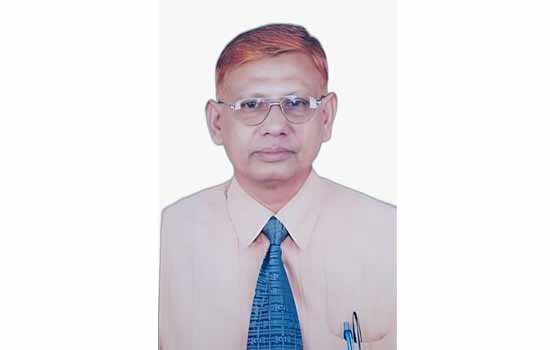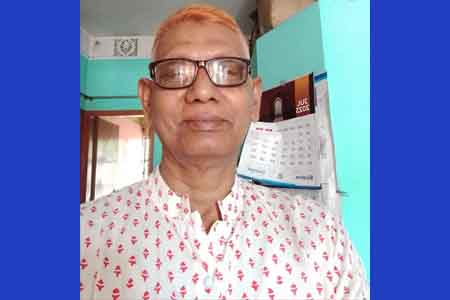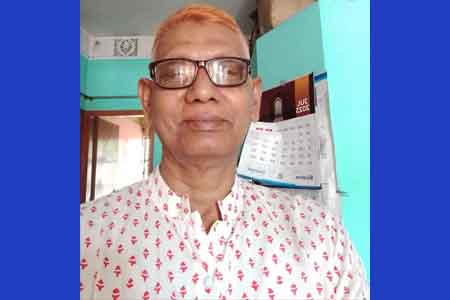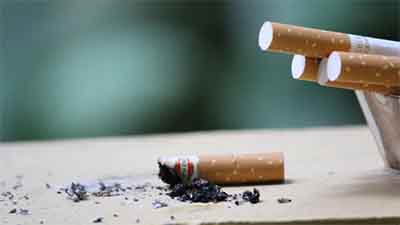
In Bangladesh, journalists and media personalities regularly get together at press clubs, a practice deeply rooted in our media culture. This tradition, long-standing and widespread, is visible not only in the capital but even in remote corners of the country. From the National Press Club in Dhaka, to District Reporters Clubs at the district level, Upazila Press Clubs at the sub-district level, and beyond, these institutions have historically served as spaces for professional networking, dialogue, and the pursuit of journalistic values.
Yet over time, a troubling trend has emerged: the division of press clubs. Many areas now host two or more competing press clubs, which weakens their collective role and causes confusion both within the media and among the public. These divisions are often rooted in internal conflicts, political pressure, changes in government, or affiliations with specific ideologies or “isms.” The same applies to journalist unions, which are also often split into opposing camps.
While journalists are neither natural friends nor enemies, their shared commitment to the truth and public interest should unite them. Unfortunately, it is increasingly evident that some media personalities are emotionally or occasionally influenced by political parties or ideological groups. This undermines the profession. A country expects its media to be a source of neutral thoughts, constructive recommendations, and factual narratives, not tools of political ambition.
It is especially concerning when media recommendations fail to reflect public aspirations, or when the media unintentionally creates conflict with development plans or government initiatives. That said, the government decision to establish a body like a Press Council is timely. Such an organization must not only protect press freedom and promote journalistic welfare, but also ensure consistency and responsibility across press clubs.
To be effective, reform must also address issues at the grassroots. In several upazilas including Bera Upazila, the existence of multiple press clubs has led to friction and even interference in coordination with local government agencies. Instead of facilitating the people voice, fragmented clubs sometimes end up conflicting with one another and competing for recognition and resources. This dilutes their role and weakens the credibility of journalism.
The acceptance and reliability of any press club depend on its activities and impartial stance. If press clubs are to fulfill their potential as guardians of journalistic integrity, they must rise above political division and personal interest. Reforming this structure both in spirit and in organization is not just a necessity but also a national priority.
To restore trust in journalism and protect its core mission, journalists must unite, uphold professionalism, and return to a principled media culture. Only then can press clubs truly serve as pillars of truth and instruments of greater public service in Bangladesh.
Md. Abdul Hannan is a media personality and president at Bera press club, Pabna.
Mobile: 01750-127669

The recent announcement by U.S. President Donald Trump regarding sweeping tariff hikes has ignited widespread concern across global trade communities. Countries that have long depended on exports to the United States now face an uncertain future. Bangladesh, whose economy is heavily reliant on international trade—especially with the U.S.—finds itself caught in the crossfire of these protectionist policies.
According to the newly proposed structure, the U.S. is set to impose a staggering 37% tariff on Bangladeshi goods. China and Vietnam, two major players in global exports, are facing even higher rates as 54% and 45%, respectively. For Bangladesh, this is an alarming jump from the existing tariff rate of around 15.6%.
This sudden policy shift poses a direct threat to Bangladesh export-driven economy. The country earns approximately $45 billion from exports annually, with ready-made garments (RMG) accounting for the lion share. Remittance contributes another $25 billion to the economy, bringing the total to $70 billion a year. Of the export figure, nearly $8 billion worth of goods—mostly apparel—are shipped to the United States. A sudden imposition of a 37% tariff on these goods could destabilize the garment sector, potentially leading to factory closures, job losses, and reduced foreign exchange earnings.
Economists and trade analysts are understandably concerned. According to early calculations, once the new policy is implemented (scheduled for April 9, 2025), the effective tariff on Bangladeshi products could jump to over 50% in some cases. This would significantly undermine the price competitiveness of Bangladeshi exports in the U.S. market.
Adding to the complexity, the U.S. administration has alleged that Bangladesh imposes a 74% tariff on American products—a claim that has left experts baffled. In reality, data tells a different story. In 2024, Bangladesh imported around $2.2 billion worth of cotton from the U.S., and the tariff imposed was just 3%. Other major U.S. exports to Bangladesh, such as petroleum and iron products, faced tariffs of 0% and 31%, respectively. On average, Bangladesh imposes between 7% and 8% tariffs on U.S. goods.
“This figure of 74% appears to be highly exaggerated and misleading,” said Dr. Khondaker Golam Moazzem, Research Director at the Centre for Policy Dialogue (CPD). “Such discrepancies need to be addressed through proper diplomatic channels. This kind of discrimination is not expected from a long-standing trade partner like the United States.”
The situation has triggered widespread debate among policy experts, trade bodies, and exporters. Many believe that this is not just a trade issue but a geopolitical signal of shifting alliances and economic strategies. The Trump administration has historically leaned toward protectionism, often using tariffs as leverage in global negotiations. Bangladesh, being a smaller player in the global trade arena, could suffer collateral damage from policies designed to target larger economies like China.
Dr. Mustafizur Rahman, Honorary Fellow at CPD, added, “It is essential to clarify whether this 74% claim is based on accurate data. If not, the U.S. needs to be informed through diplomatic channels. A misrepresentation at this level can create long-term mistrust.”
In response to the rising concern, the Bangladesh government has already reached out to the U.S. administration, urging a reconsideration of the proposed tariff. Chief Adviser Dr. Mohammed Younus has reassured exporters that he will personally engage with American officials to seek a resolution. “We are hopeful that this issue can be resolved through constructive dialogue,” he stated. “The trade relationship between our two countries has always been mutually beneficial, and we expect it to remain so.”
While the trade war rhetoric intensifies globally, Bangladesh must tread carefully. Experts are urging the government to diversify its export markets to reduce overdependence on any single country. The European Union, Canada, Australia, and other Asian economies offer potential opportunities. At the same time, Bangladesh must continue improving its domestic infrastructure, ease of doing business, and product diversification to stay competitive in the global market.
Moreover, the business negotiation capacity of the nation needs to be strengthened. In a rapidly changing global trade environment, timely data, skilled negotiators, and strategic foresight are essential to protect national interests, too. Nonetheless, it is crucial for Bangladesh to proactively share a factual and transparent account of its trade and tariff policies to prevent misunderstandings and maintain credibility in global trade discussions.
As we await further clarity through an official gazette notification from the U.S., one thing is clear: this tariff issue is not merely about numbers; rather, it is about fairness, diplomacy, and the future of millions of workers in Bangladesh export sectors. Now it is time to see how both countries address this issue, not just their bilateral trade relations, but also send a message to the rest of the world about the future of fair trade practices.
The writer is a media personality and president of the Bera Press Club. Ex. president BDMA, PABNA.
M. A . Hannan
01711-930855

As Bangladesh interim government, led by Chief Adviser Professor Muhammad Yunus, crosses its six-month milestone, it has unveiled a record of bold reforms, cautious diplomacy, and a targeted focus on reviving the economy. Since assuming power on August 8, 2024, the administration has sought to stabilize governance, uphold the rule of law, and restore investor and public confidence while navigating significant political and structural challenges.
Economy on the Mend: Stabilization and Growth Signals
The interim government top priority has been economic recovery. After a period of fiscal instability, it has managed to stabilize foreign exchange reserves, ensuring timely payments for imports and foreign debt, while avoiding reliance on emergency credit.
Export performance has shown strong signs of recovery. Data from the Export Promotion Bureau shows that exports rebounded by 7% in September 2024, followed by over 20% growth in October, a trend attributed to improved port operations, streamlined customs processes, and diplomatic outreach to key trade partners.
The administration also brought in a team of veteran economists and technocrats to restore order in the troubled banking sector, cracking down on non-performing loans and introducing governance reforms in several state-owned banks.
Moreover, the Anti-Corruption Commission (ACC) launched high-profile investigations into financial misconduct by former ministers and officials. Nearly 50 former MPs and ministers have faced inquiries, with frozen accounts and asset seizures underway. A white paper detailing the nation financial health is being drafted to provide full public transparency.
The European Investment Bank announced plans to double its funding to Bangladesh, especially for climate-resilient and infrastructure projects—a testament to growing international confidence.
Judicial Shake-Up and Legal Overhauls
The interim period began with a major shift in the judiciary. Following the controversial exit of the former Chief Justice and five senior judges, the government appointed Justice Syed Refaat Ahmed as Chief Justice, alongside a restructured Appellate Division.
An independent Judicial Reform Commission was formed to overhaul legal institutions. Draft amendments to the Cyber Security Act 2023 and the International Crimes (Tribunals) Act 1973 are nearing completion following public and legal stakeholder consultations.
Additionally, a new National Commission on Enforced Disappearances was launched to investigate allegations, further enhancing the interim government commitment to justice and human rights.
Administrative Reforms and Anti-Corruption Drive
Within the first month, over 100 senior officials were reshuffled. The government terminated politically motivated contracts and appointments from the previous administration. Efforts were made to depoliticize the bureaucracy and restore neutrality across public institutions.
Public service recruitment rules are being reviewed to emphasize merit-based appointments, transparency, and digital oversight.
Security and Law Enforcement: Balancing Order and Rights
The government responded swiftly to police unrest in September 2024 by approving better working conditions and salaries, prompting a return to duty. Security forces also recovered weapons and equipment looted during earlier political violence.
In February 2025, the launch of Operation Devil Hunt—targeting criminal networks and former regime loyalists—raised both support and criticism. Human rights organizations have called for independent monitoring of arrests and detentions under the operation.
Technology and Connectivity: Starlink Agreement in Progress
In a landmark move, the government is finalizing a commercial agreement with SpaceX Starlink to introduce satellite internet across rural Bangladesh. The deal, expected to close by mid-2025, aims to transform digital access in underserved regions and boost remote education, e-commerce, and e-governance.
Political Landscape and Democratic Aspirations
While the BNP has called for general elections by August 2025, a new political movement—the National Citizens Party (NCP)—has emerged, led by student activists from the 2024 revolution. The NCP has vowed to rewrite the constitution and build a “Second Republic” based on civic values and electoral reforms.
Challenges Ahead: Price Hikes and Public Pressure
Despite progress, inflation and essential commodity price hikes remain a pressing issue. Daily necessities, particularly food and fuel, have seen sharp increases, drawing criticism from civil society and political opponents.
Extortion, especially in the transport and labor sectors, also continues to challenge the rule of law.
Looking Forward
The next six months will be crucial as the interim government navigates electoral preparations, economic reforms, and public expectations. Whether the current momentum can lead to a democratic transition without backsliding will define the legacy of this administration.
M A Hannan,
correspondent, Bera (Pabna).
01711-930855

The latest increase in value added tax (VAT) and supplementary duty (SD) is sending ripples through the cigarette market, as prices of different brands of this consumer item have gone up significantly.
Stakeholders expressed apprehension that the sudden hike in VAT and SD would spur consumer prices, dampen demand and ultimately affect the government revenue. It is also appreciated that the price-hike of cigarettes might lead to rise in sales of illicit cigarettes, dealing further blow to the expected revenue receipt.
As cigarette manufacturers release their products to the market after paying the revised taxes and duties, almost all types of cigarettes now cost an additional Tk 1-2 per stick.
VAT and SD on more than a hundred goods and services, including cigarettes, were revised upwardly on January 09. The price of cigarettes has been raised accordingly.
The National Board of Revenue (NBR) has already issued directives for using stamps and banderoles based on the new price levels.
The Foreign Investors Chamber of Commerce and Industry (FICCI), in a statement, said the tax and duty hike, without consultation with stakeholders, would affect business and investment.
The FICCI which represents 90 per cent of foreign direct investment (FDI) across sectors like tobacco, telecom, energy, and finance, also mentioned that such measures could deter future FDI by eroding investor confidence.
Dwelling on the matter, Shabab Ahmed Choudhury, Head of Corporate and Regulatory Affairs, BAT Bangladesh, stated, “BAT Bangladesh has been operating in the country for 115 years and has been an active contributor to the nation growth. As one of the highest contributors to country revenue, we believe that a consultative, stakeholder-inclusive approach should have been taken by the National Board of Revenue before implementing this decision. Cigarette tax in Bangladesh already exceeds the level recommended by WHO (75%) and this decision to raise it to 83% raises significant concerns for the industry long-term future. This change will result in series of negative, unintended consequences – impacting the business footprint and investment, the illicit cigarette market, and the Government revenue long term. Moreover, the decision will negatively affect the livelihoods of approximately 4.4 million citizens connected to the extensive supply chain reliant on the tobacco industry and its associated sectors, including farmers, retailers, and distributors. We strongly urge the Government to hold stakeholder-inclusive dialogue with all relevant parties and reconsider this disappointing decision.”
A quick look at the price hike for each brand per stick in the retail market shows – Benson & Hedges – increased from Tk 18 to Tk 20; Gold Leaf – increased from Tk 13 to Tk 15; Lucky Strike – increased from Tk 10 to Tk 12; and Star – increased from Tk 8 to Tk 10. Derby, Pilot, and Hollywood are now priced at Tk 8 per stick, and Royals is now priced at Tk 7 per stick.
Each brand 20-stick packet has seen a price surge of Tk 20 – Tk 30. The wholesale prices for 20-stick packets are – Benson & Hedges – Tk 370; John Player Gold Leaf – Tk 280; Lucky Strike – Tk 210; Star – Tk 172; Pilot, Derby Style, and Hollywood – Tk 144; Royals – Tk 126.
According to the NBR order, for low-tier cigarettes, the price of a 10-stick packet has increased from Tk 50 to Tk 60 or more, with supplementary duty increasing from 60 per cent to 67 per cent. For mid-tier cigarettes, the price has increased from Tk 70 to Tk 80 or more, with supplementary duty increasing from 65.5 per cent to 67 per cent. For high-tier cigarettes, the price has increased from Tk 120 to Tk 140 or more, with supplementary duty increasing from 65.5 per cent to 67 per cent. For premium-tier cigarettes, the price has risen from Tk 160 to Tk 185 or more, with supplementary duty increasing from 65.5 per cent to 67 per cent.
Cigarette packets must contain banderoles, which are attached at the factory before being marketed. The government collects revenue through the sale of these banderoles. The NBR collects the highest revenue from the cigarette and tobacco sector. About 60 per cent to 80 per cent of the price of each cigarette stick goes toward taxes and duties. In the fiscal year 2023–24, the government earned Tk 37,915 crore in taxes and duties from the sector. This amount was paid by 31 companies selling cigarettes. In the previous fiscal year, the VAT department collected Tk 32,816 crore in taxes and duties from cigarette sales.

